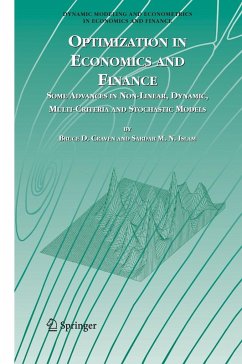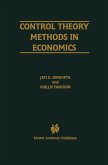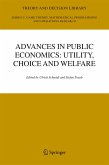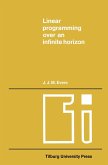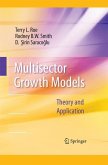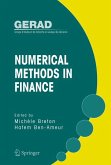Many optimization questions arise in economics and finance; an important example of this is the society's choice of the optimum state of the economy (the social choice problem). Optimization in Economics and Finance extends and improves the usual optimization techniques, in a form that may be adopted for modeling social choice problems. Problems discussed include: when is an optimum reached; when is it unique; relaxation of the conventional convex (or concave) assumptions on an economic model; associated mathematical concepts such as invex and quasimax; multiobjective optimal control models; and related computational methods and programs. These techniques are applied to economic growth models (including small stochastic perturbations), finance and financial investment models (and the interaction between financial and production variables), modeling sustainability over long time horizons, boundary (transversality) conditions, and models with several conflicting objectives. Although the applications are general and illustrative, the models in this book provide examples of possible models for a society's social choice for an allocation that maximizes welfare and utilization of resources. As well as using existing computer programs for optimization of models, a new computer program, named SCOM, is presented in this book for computing social choice models by optimal control.
From the review:
Craven and Islam have produced an excellent survey of recent applications of optimization to economics (especially growth theory) and finance. The exposition is clear, with good notation and a judicious mix of rigor and heuristic argument. As a bonus, they present a new SCOM program to compute solutions to social choice models. This book will surely prove to be a boon to the student, especially those who wish to learn about optimal growth under different conditions and assumptions. The text covers a wide range of optimization models in economics and finance, including non-linear programming, dynamic optimization, stochastic control and dynamic vector optimization models. The models are applicable to decision making, forecasting, simulation, sensitivity analysis and planning.
Professor David W. K. Yeung Director of the Center of Game Theory Professor of Decision Sciences Hong Kong Baptist University Hong Kong & Managing Editor, International Game Theory Review.
"This book is an interesting and interdisciplinary survey of applications of optimization to special parts of economics (growth theory) and finance. ... the whole contents of this book is presented in a unified manner. It is a pleasure to read the explicitly given hints to proposed extensions of existing methods and also to read discussions, assessments, recommendations and conclusions of the authors ... ."
(Alfred Göpfert, Zentralblatt MATH, Vol. 1086, 2006)
"This book is concerned with the description of some basic and also advanced models in mathematical programming and optimal control and with some applications of these models to quantitative welfare economics and finance. ... This book is ... suitable as a reference book for researchers, academics, and doctoral students in the area of mathematical programming, finance and economics."
(Giorgio Giorgi, Mathematical Reviews, Issue 2006 e)
Craven and Islam have produced an excellent survey of recent applications of optimization to economics (especially growth theory) and finance. The exposition is clear, with good notation and a judicious mix of rigor and heuristic argument. As a bonus, they present a new SCOM program to compute solutions to social choice models. This book will surely prove to be a boon to the student, especially those who wish to learn about optimal growth under different conditions and assumptions. The text covers a wide range of optimization models in economics and finance, including non-linear programming, dynamic optimization, stochastic control and dynamic vector optimization models. The models are applicable to decision making, forecasting, simulation, sensitivity analysis and planning.
Professor David W. K. Yeung Director of the Center of Game Theory Professor of Decision Sciences Hong Kong Baptist University Hong Kong & Managing Editor, International Game Theory Review.
"This book is an interesting and interdisciplinary survey of applications of optimization to special parts of economics (growth theory) and finance. ... the whole contents of this book is presented in a unified manner. It is a pleasure to read the explicitly given hints to proposed extensions of existing methods and also to read discussions, assessments, recommendations and conclusions of the authors ... ."
(Alfred Göpfert, Zentralblatt MATH, Vol. 1086, 2006)
"This book is concerned with the description of some basic and also advanced models in mathematical programming and optimal control and with some applications of these models to quantitative welfare economics and finance. ... This book is ... suitable as a reference book for researchers, academics, and doctoral students in the area of mathematical programming, finance and economics."
(Giorgio Giorgi, Mathematical Reviews, Issue 2006 e)

